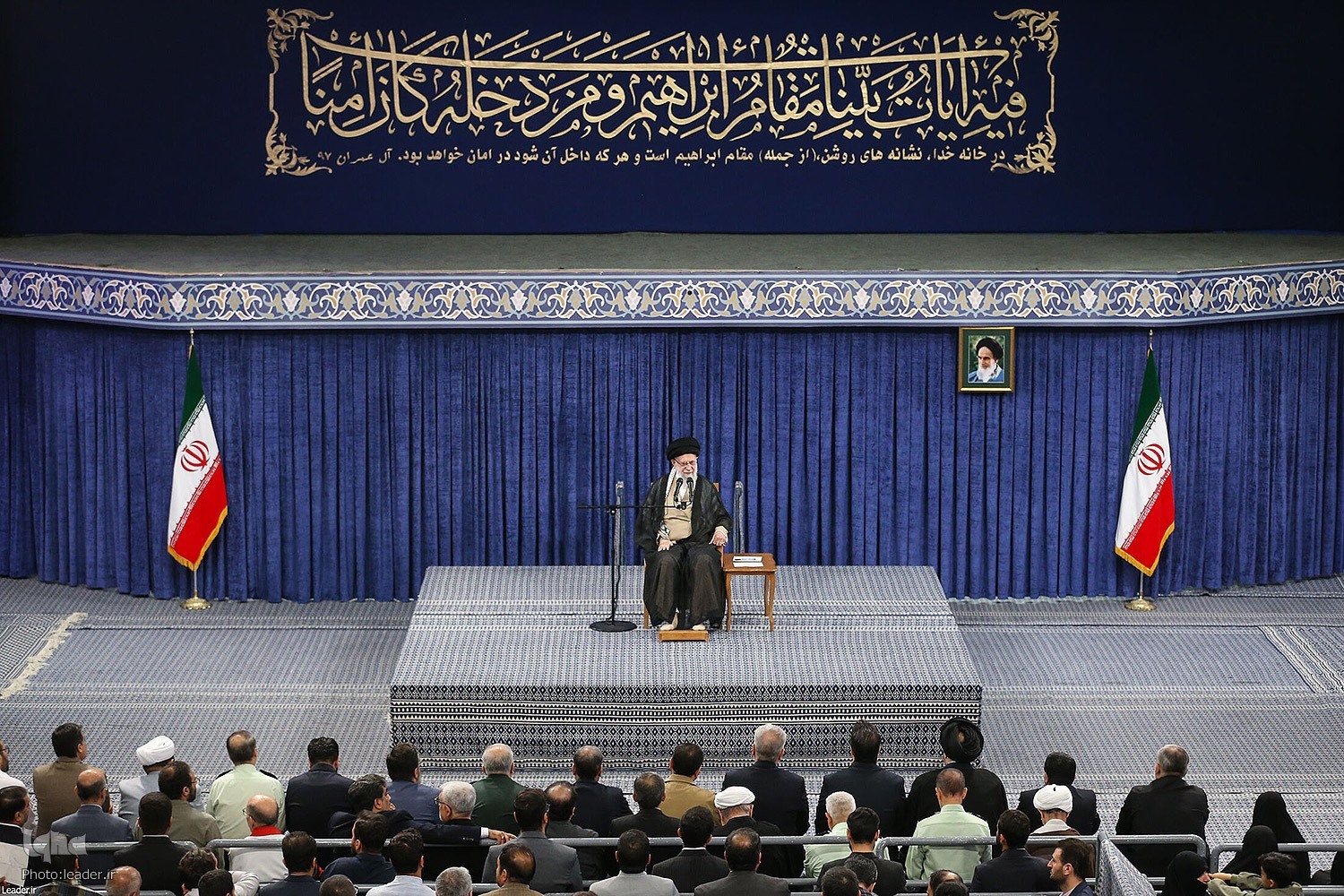‘No Benefit Higher Than Unity for Muslims’: Ayatollah Khamenei

“The Hajj is a duty—perhaps it can even be said the only duty—whose form and outward appearance, its structure, is entirely political,” Ayatollah Seyyed Ali Khamenei said on Sunday while addressing Hajj officials and servants in Tehran ahead of their departure to Saudi Arabia.
The Hajj, he maintained, “brings people together in the same place, at the same time, every year—anyone who is able to come. What is this? It is the gathering of people, the convergence of individuals in one place. The very act itself carries a political nature.”
“Therefore, contrary to the efforts, statements, and behavior of some who try to cast doubt, Hajj is inherently political in its nature, its form is political, and its structure is political,” the Leader said.
"The Hajj gathering is for the benefit of humanity, and no benefit is greater for the Islamic Ummah than unity," he said, adding, "If the Muslim Ummah were united, issues like Palestine and Gaza would not arise, and Yemen would not face such pressure."
He added that while the Hajj carries a political and communal dimension in its structure and symbolism, its content remains entirely spiritual and devotional. Each ritual, he noted, carries symbolic meaning and offers moral lessons relevant to the various needs and challenges of human life.
Read More:
Explaining some of these symbols, he described Tawaf — the ritual of circling the Kaaba — as a profound lesson in the necessity of centering life around monotheism. "Tawaf teaches humanity that governance, daily life, economy, family, and all aspects of existence should be built upon the foundation of towhid. In such a world, cruelty, child-killing, and greed would disappear, and the world would become a garden of peace," he said.
He went on to describe the Sa’i between Safa and Marwa — the walking between two hills — as a symbol of constant effort in the face of life’s challenges. "One must persistently strive through the mountains of hardship, never pausing in hesitation or confusion," he remarked.
The journey toward Arafat, Muzdalifah, and Mina, he said, reflects a lesson in continuous movement and the rejection of inertia. "Sacrifice," he added, "symbolizes the profound truth that at times, one must be willing to part with even the dearest of companions, to make sacrifices — or even become a sacrifice oneself."
Read More:
Speaking on the stoning of the Jamarat, he emphasized that it illustrates God’s command for believers to identify and confront both the demonic forces among humans and jinn. "Wherever one finds the devil, he must strike — without hesitation," he declared.
Finally, he pointed to the wearing of the Ihram garments as a symbol of humility and human equality before God. "Each of these rituals," he noted, "is meant to orient human life — to guide it in a meaningful, divine direction."
4280119



